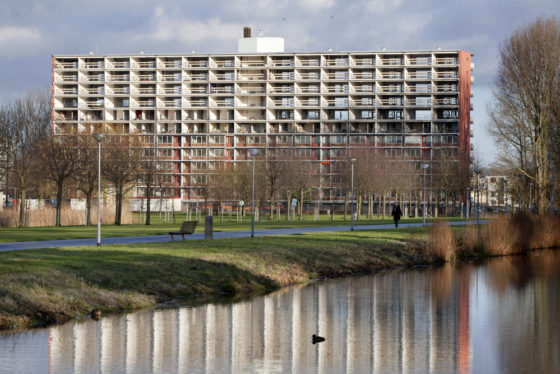Deprived neighbourhoods will be back, housing corporations warn


Dutch housing corporations are again sounding the alarm about conditions on the country’s poorest social housing estates.
Without concerted action by corporations, national and local government, conditions on the estates will deteriorate further, the housing groups warn in a new report.
‘It is now time to take action together, to prevent the situation worsening,’ Hester van Buren, board member at the housing corporation umbrella group Aedes said. ‘It is not yet too late, but it is one minute to midnight.’
Aedes research shows that people living in the poorest neighbourhoods are three times as likely to face difficulties with their neighbours as the average person. One in five worry they will be robbed or hassled, compared with 6% nationwide.
As better-off households leave problem areas, they are replaced by people on very low incomes, further exacerbating the problems, Aedes says. The policy of care in the community has also increased the number of people with psychological issues living in social housing.
Local authorities should ensure that their housing policies create mixed neighbourhoods, Van Buren said. Aedes is also campaigning to get the government to scrap the tax they pay on social housing rental income – money which the lobby group says would be better spent on building new homes.
Some 1.5 million of the Dutch population of over 17 million live in areas where more than two thirds of the homes are rent controlled. This means they have a rent of less than €730 a month and can only be rented to people on low incomes.
Acting housing minister Stientje van Veldhoven told Radio 1 news in a reaction to the Aedes report that she wanted to make it possible for housing corporations to create more mixed neighbourhoods.
One way would be to allow the corporations to allocate 15% of their social housing properties to people with a higher income than technically allowed. The current limit is 10%.
Thank you for donating to DutchNews.nl.
We could not provide the Dutch News service, and keep it free of charge, without the generous support of our readers. Your donations allow us to report on issues you tell us matter, and provide you with a summary of the most important Dutch news each day.
Make a donation